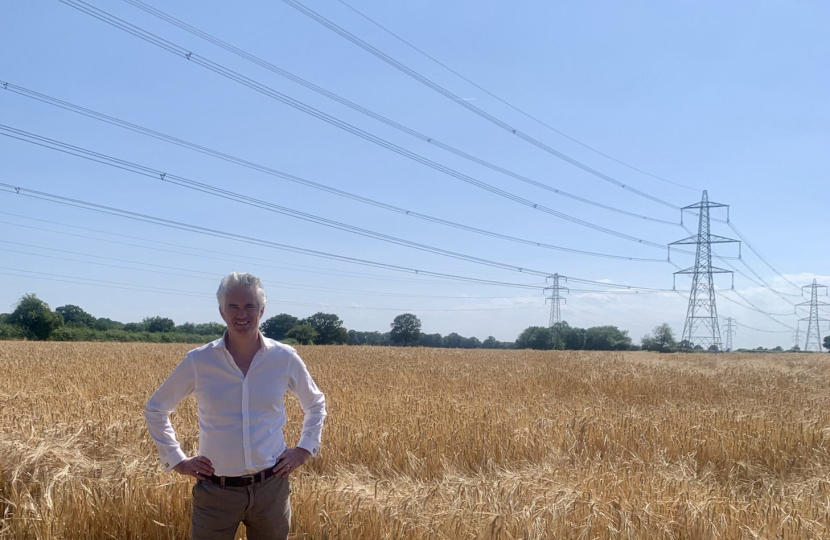
One of the great privileges of being the Member of Parliament for South Suffolk is a sense of custodianship – this is a fundamentally rural constituency, and as harvest time gathers pace and our fields bask in proper summer sunshine, I feel a sense of duty to make my voice heard when the countryside’s interests seem unduly threatened. Regrettably, I fear that time is now upon us.
We can debate energy policy and the need for new homes until the cows come home, but I doubt that there are many people who believe that the impact of development on the countryside should ever be completely ignored, or literally removed from policy considerations. To permanently take agricultural land out of production has a cost and a negative environmental impact of its own, whether that cost and impact is justified or otherwise. We need a planning system that is therefore balanced and sensible in its decision making on whether to proceed with such development.
To be clear, I appreciate as much as anyone the sense that buying a home in England has become unaffordable for many; the business I ran prior to being elected in 2015 operated in a sector where assisting first time buyers was our daily bread. But it must be self-evident that, as undesirable as it would be to have a policy of denying any development in the countryside, there is permanent harm in one that gives no weight to loss of habitat.
This is one reason I’ve championed Neighbourhood Plans, as a way of ensuring that communities bring forward new homes – but, as far as possible, with local consent as to where exactly they are erected. It’s about the balance we surely have to have at the heart of a functional planning system.
Whereas, since the election, we’ve seen permission given for very large solar farms in Suffolk where the scale is disproportionate to the ‘benefit’ that they provide. We’ve also heard that Babergh will need to deliver much higher numbers of new build homes; and I am in correspondence with Babergh District Council to find the precise details and implications of those new targets.
Yet, will policies that trump considerations of rural impact actually deliver the ‘better’ outcomes that might justify such an approach? Clearly, in theory if you liberalise planning laws in the countryside more land will be made available for development and greater supply of homes will follow, pushing down prices.
But there is a major risk. The ‘stick’ with which districts will be threatened for failing to deliver higher homes’ targets is that, in effect, national planning rules will trump local ones. We’ve been here before, when the land available for development falls below five years. The problem is that ‘speculative’ development then follows – builders going for permissions that would not ‘normally’ be granted – and in my experience and that of Parliamentary colleagues, developers tend to park ‘standard’ sites and chase the speculative ones for fear of losing out.
On energy, it’s clear that we are going to see far more onshore wind and solar farms coming forward. I have to say it’s with some irony that these planning changes are justified on delivering ‘energy security’.
First, they are at the cost of food security – many readers will question if that is a fair trade off; and I’ve always supported restrictions to develop on productive farmland. Secondly, and this is particularly important for the new Government, on the one hand they talk about ‘energy security’, but on the other they are deliberately and recklessly hobbling our greatest natural, native energy gift – North Sea oil. All the evidence suggests oil will remain central to our energy needs throughout the transition to net zero and this destructive approach to our natural fossil fuel abundance will simply see us importing more oil – at higher cost; from foreign nations rather than our own reserves; with higher emissions and, in parallel, losing well paid UK jobs, tax revenue and hard currency earnings.
After all, it’s not as if we are not doing our bit. East Anglia’s coast has delivered Britain’s new energy revolution, with offshore wind generating enormous quantities of electricity and Sizewell C will be providing the ‘baseload’ nuclear power to go alongside it. All this requires transmission infrastructure and again, we are in the firing line.
Pylons; solar farms; new homes; onshore wind and so on. Each may have their advocates, but any sustainable system must be properly balanced. That means giving due weight to the impact on our precious countryside – of which we are all custodians.
Published in the Suffolk Free Press.

